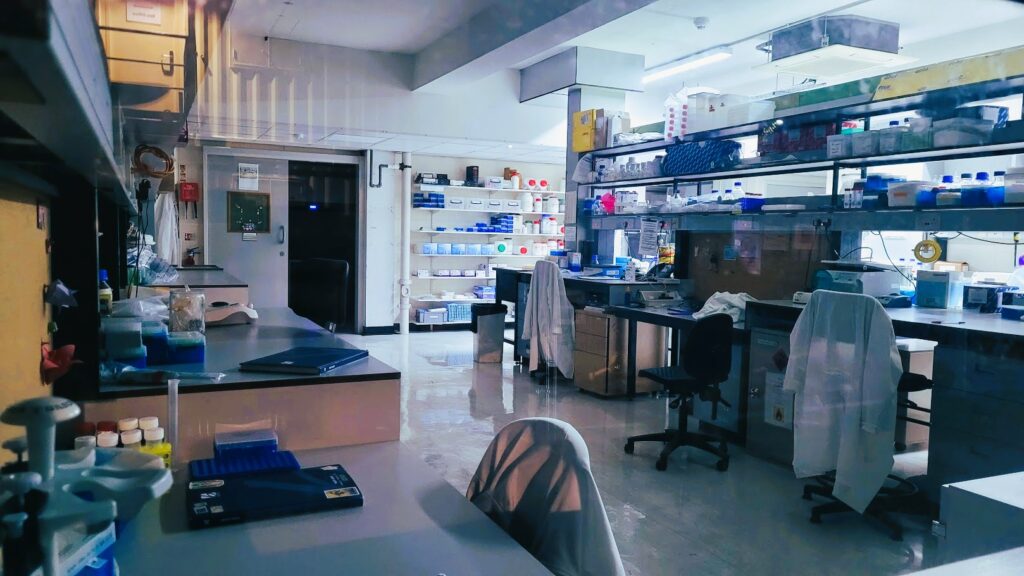New compound helps to prevent biofilm formation on medical devices

Laboratory at night. Image by Tim Sandle
Maine researchers have identified a plant-based compound that prevents infectious biofilm formation. The new compound may help to combat the rise in antibiotic resistance. The applications include developing special coatings for medical devices designed to enter the human body.
The discovery comes from scientists based at the University of New England (UNE) and it indicates the potential effectiveness of certain plant-based compounds in preventing hospital-acquired infections.
The research team was led by Associate Professor Kristin Burkholder, Ph.D. The group set out to explore methods for reducing biofilm formation for two types of Staphylococcus bacteria that are prone to causing infections in hospitals, notably on in-dwelling medical devices such as catheters or surgical implantations.
The bacteria studied were Staphylococcus aureus and S. epidermidis. These organisms are associated with human skin but they can cause concerns when they enter the bloodstream.
These bacteria are common causes of nosocomial infections and they can form biofilms (where the organisms are protected by an extracellular matrix on a surface, which enhances their resistance). The biofilm enables the bacteria to increase in concentration and then to break off and travel through the bloodstream, attaching themselves to organs like the heart and causing sometimes life-threatening infections.
With the study, the researchers decided to test the ability of pyrogallol, a phenolic compound used in several clinical applications for its anti-inflammatory effects, to disrupt biofilm formation.
For this, the researchers exposed four strains of Staphylococcus to varying concentrations of pyrogallol. Through observation, the team determined that pyrogallol successfully prevented biofilms from forming in Staphylococcus samples, although the compound did not reduce the prevalence of existing biofilms.
Additional testing revealed that pyrogallol inhibited biofilm formation by causing bacterial oxidative stress, demonstrating how oxidative stress is an effective mechanism in preventing staphylococcal biofilms from forming. Hence, oxidative stress could be used to treat and prevent infections.
By preventing biofilm formation on surfaces like in-dwelling medical devices, this could reduce the need for antibiotics in treating biofilm-related infections.
The study is titled “Pyrogallol Impairs Staphylococcal Biofilm Formation via Induction of Bacterial Oxidative Stress,” and it has been published in the Journal of Applied Microbiology.
New compound helps to prevent biofilm formation on medical devices
#compound #helps #prevent #biofilm #formation #medical #devices





